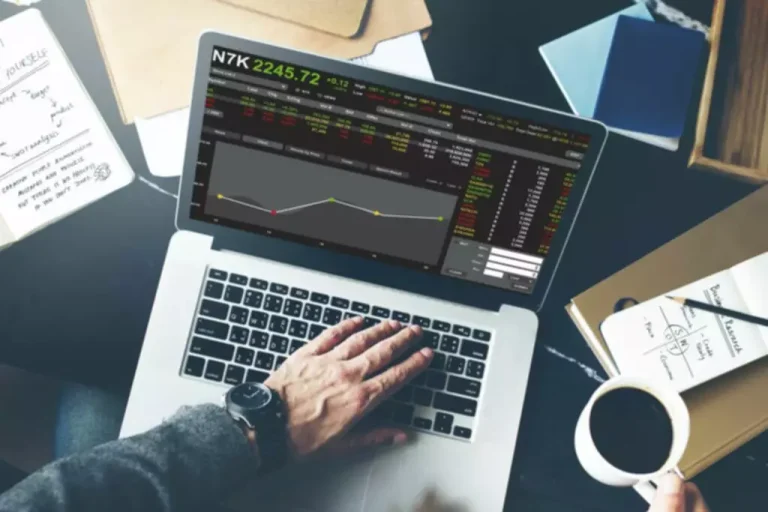You need to choose crypto exchanges which could cater to your specific goals. In the case of a centralized cryptocurrency exchange, you need to look for features such as user-friendliness and low costs. Some of the other important features of centralised exchanges include the facility of live market prices for cryptocurrencies listed on the exchange. However, decentralized exchanges or DEXs also feature transaction fees alongside network charges for moving digital assets. In addition, a centralized exchange is different from decentralized counterparts on the basis of the storage of private keys of users.

Once you are satisfied with the testing results, launch your centralized exchange. These are not deal-breakers for most people, but they are something that you should be aware centralized exchange meaning of. We mentioned this as well when we said that you have to deposit money into your account. After you buy crypto, it is stored in your portion of the exchange’s wallet.
What Is a Centralized Market?
This type of DEX is called an Orderbook DEX, where orderbooks can be hosted on-chain or off-chain. Off-chain orderbooks place reliance on third parties to manage orders, which prevents them from being truly decentralised. Each CEX uses a different business strategy to generate revenue, but most rely on commission fees. Every time a crypto trader places a buy or sell order, the CEX often collects a small percentage of the transaction called a commission. CEXs may offer bonus features like margin trading, custodial crypto staking, and debit cards to collect extra fees from customers. In fact, some CEXs charge fees for depositing or withdrawing fiat currencies or crypto from their websites.
- Centralized crypto exchanges use a third-party intermediary to connect buyers and sellers.
- You can create the account by using your email and setting a unique password.
- This centralization often leads to a more reliable, secure, and user-friendly experience.
- However, they also come with risks, such as being a central point of failure and regulatory hurdles.
- As of the date this article was written, the author owns bitcoin and XRP.
Many DEXs like Uniswap use smart contract-based liquidity pools (LPs) to attract crypto deposits for trading. All virtual currency in an LP is open for trading on a DEX, and people who loan crypto to these pools get a percentage of the total trading fees. Although decentralized exchanges (DEXs) like dYdX are growing in popularity, recent statistics suggest these exchanges account for roughly 18% of total crypto spot trading. And with more than $14 trillion in annual trading volume, CEXs remain the most active domains for global cryptocurrency traders. That said, CEXs aren’t always the ideal option to trade cryptocurrencies. They hold user funds and digital currencies of crypto investors in crypto wallets and act as the central authority that authenticates all transactions.
Most Noticeable Highlight in Working of Centralized Exchanges
Decentralized exchanges (DEX) present a unique set of regulatory challenges, primarily due to their decentralized nature. The anonymity that most DEXs offer poses a particular challenge for regulatory oversight. This has led to ongoing debates among policymakers about whether and how decentralized platforms should be regulated. Additionally, the use of smart contracts in DEXs raises new questions about legal liability. For instance, who is responsible if a smart contract is flawed or is used for illegal activities?

Unlike traditional exchanges, Uniswap allows anyone to become a liquidity provider and earn fees. Its open-source nature and the governance token, UNI, have made it a decentralized and community-driven platform. However, it has faced challenges such as “impermanent loss” for liquidity providers and has been a target for various types of arbitrage and manipulation. Despite these issues, Uniswap remains a key player in the DeFi ecosystem.
What Crypto Investment Products Does Phemex’s Centralized Exchange Feature?
In the following article, we’ll explain everything you need to know about CEXs (centralised exchanges), including how they work and what makes them different from DEXs. Centralized exchanges (CEXs) are organizations that coordinate cryptocurrency trading on a large scale, using a similar business model to traditional asset exchanges like stock exchanges. DEXs, while improving, can sometimes be slower due to the use of peer-to-peer blockchain technology for their transactions. CEXs usually offer a more user-friendly interface with customer support and a wide range of features.

A centralized exchange uses an order book system to facilitate crypto trading. It lists all the buy and sell orders, displaying the price and quantity of each order. An order book records ongoing trading activity and allows the user to see the current market depth and liquidity.
Blockchain – An Exclusive Support System For Artists
The differences between DEXs and centralized crypto exchange platforms show that both of them have advantages and setbacks. One of the significant highlights in favour of CEXs refers to the advantage of regulations. The regulatory aspect of centralized exchanges ensures better safety and transparency by ensuring that the exchange operates within the limits of the law. At the same time, it is also important to note that centralized exchanges offer better performance in comparison to DEXs. Market makers in CEXs offer liquidity to ensure an easier and more prompt exchange of assets.
Like all centralised platforms, centralised exchanges are an attractive target for hackers. Before a user can trade on a CEX, they must sign up and verify their account. If they own crypto, they can deposit to an exchange wallet which credits their account, ready for trading. If not, prospective traders can use fiat on-ramps to purchase crypto with credit cards, bank transfers, and more. Establish partnerships with liquidity providers to ensure a smooth trading experience.
Leveraging Crypto Trading Bots For Intelligent & Profitable Trading Approach
In addition, centralized exchanges must also oblige with the conditions of transparent operations. The centralized exchanges should also follow specific procedures which prevent the unnatural manipulation of asset prices. Centralized cryptocurrency exchanges (CEXs) have come a long way since the launch of Bitcoin in 2009.

At first, these attempts were mostly unsuccessful, with the main issue being the lack of liquidity. Apart from that, a CEXs simply offers a wide range of products and integrated services, which means everything is in one place, making it easier for users to manage their assets. Some platforms offer staking, https://www.xcritical.com/ NFT marketplaces, seemingly endless liquidity, launchpads, P2P exchanges and more. For this, users deposit assets into smart contracts called liquidity pools. These pools automatically execute trades based on predefined mathematical formulas rather than relying on individual buy and sell orders.
Secure Your Digital Assets: Get the Efficient Crypto Wallet Solution Futurengage
Since becoming functional, DEXs have revolutionized crypto trading once again. They have contributed to pushing the crypto industry down the path of true decentralization. If a buyer wants to buy bitcoin (BTC) at $20,000 and a seller wants to sell bitcoin at $20,000, the exchange matches the orders of these two people.
Working of Centralized Exchanges
Transactors trust not only that the exchange will safely complete their transactions for them but also that it will use the network of users in the exchange to find trading partners. In the term “centralized cryptocurrency exchange,” the idea of centralization refers to using an intermediary or third party to help conduct transactions. This is common in a bank setup, where a customer trusts the bank to hold their money. Although an exchange may be centralized, the cryptocurrency that investors buy on the exchange is often still decentralized.
Each CEX uses a centralized “order book” to record every transaction on its platform. A decentralized exchange is a crypto exchange that is not managed by a single entity. It is an automated platform built using smart contracts and is ran by the community and algorithms.


 টাইম নিউজ বিডি ডেস্ক :
টাইম নিউজ বিডি ডেস্ক : 









